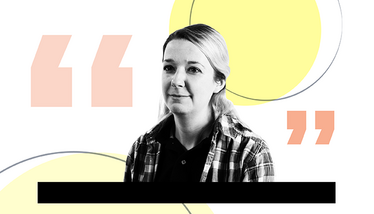Robert F. Kennedy Jr Nomination Advances
Senate committee votes in favor of the nomination; full Senate vote will be next
Stephanie Vine | | 2 min read | News

The Senate Finance Committee voted 14-13 to advance the nomination of Robert F. Kennedy Jr for the position of US Health Secretary. There was a clear party split, with all Republicans voting in favor and Democrats against.
Prior to the vote, there was speculation that Republican Senator Bill Cassidy could vote against the nomination. Cassidy practiced medicine for 30 years in a hospital for the uninsured and is a proponent of vaccine research and immunization programs. During confirmation hearings, Cassidy pressed Kennedy Jr on his history of criticizing vaccines.
On Tuesday, Cassidy posted on X (formerly Twitter) to explain that he would vote in favor of the nomination: “I’ve had very intense conversations with Bobby and the White House over the weekend and even this morning. I want to thank VP JD specifically for his honest counsel. With the serious commitments I’ve received from the administration and the opportunity to make progress on the issues we agree on like healthy foods and a pro-American agenda, I will vote yes.”
He also delivered a speech after voting. “Mr. Kennedy and the administration committed that he and I will have an unprecedentedly close collaborative working relationship if he is confirmed. We will meet or speak multiple times a month. This collaboration will allow us to work well together and therefore to be more effective,” he said. “He has also committed that he would work within the current vaccine approval and safety monitoring systems, and not establish parallel systems. If confirmed, he will maintain the Centers for Disease Control and Prevention’s Advisory Committee on Immunization Practices without changes. CDC will not remove statements on their website pointing out that vaccines do not cause autism.”
Many Democrats have been highly vocal of their opposition to the nomination, pointing to RFK Jr’s history of anti-vaccine views and lack of medical qualifications.
Senator Bernie Sanders said, “I cannot in good conscience vote for someone who denies and will dilute our public health protections, sow distrust in science and oversee massive cuts to health care programs for low-income people, nursing home care for seniors and long-term care for people with disabilities.”
He added that, “We should listen to over 900 public health officials in 41 states who have urged us to prioritize science and reject Mr. Kennedy’s ‘dangerous’ nomination.”
Next will be a vote before the full Senate. Republicans control the Senate but only by a slim margin. Many media outlets believe that RFK Jr is on track to win the final vote.
RFK Jr’s background
Born January 17, 1954, RFK Jr is a nephew of former US president John F. Kennedy. He earned a bachelor’s degree in American history and literature at Harvard University and a law degree from the University of Virginia. He started work as an assistant district attorney in Manhattan in 1982.
In the mid-1980s, he became involved with the environmental Riverkeeper and the Natural Resources Defense Council. He became an adjunct professor of environmental law at Pace University School of Law in 1986 and founded Pace's Environmental Litigation Clinic in 1987. In 1999, he established the Waterkeeper Alliance, a nonprofit focused on clean water advocacy.
In April 2023, Kennedy announced his candidacy for the Democratic nomination in the 2024 US presidential election. He later ran as an independent before suspending his campaign in August 2024 and endorsing Donald Trump.

Making great scientific magazines isn’t just about delivering knowledge and high quality content; it’s also about packaging these in the right words to ensure that someone is truly inspired by a topic. My passion is ensuring that our authors’ expertise is presented as a seamless and enjoyable reading experience, whether in print, in digital or on social media. I’ve spent fourteen years writing and editing features for scientific and manufacturing publications, and in making this content engaging and accessible without sacrificing its scientific integrity. There is nothing better than a magazine with great content that feels great to read.



















